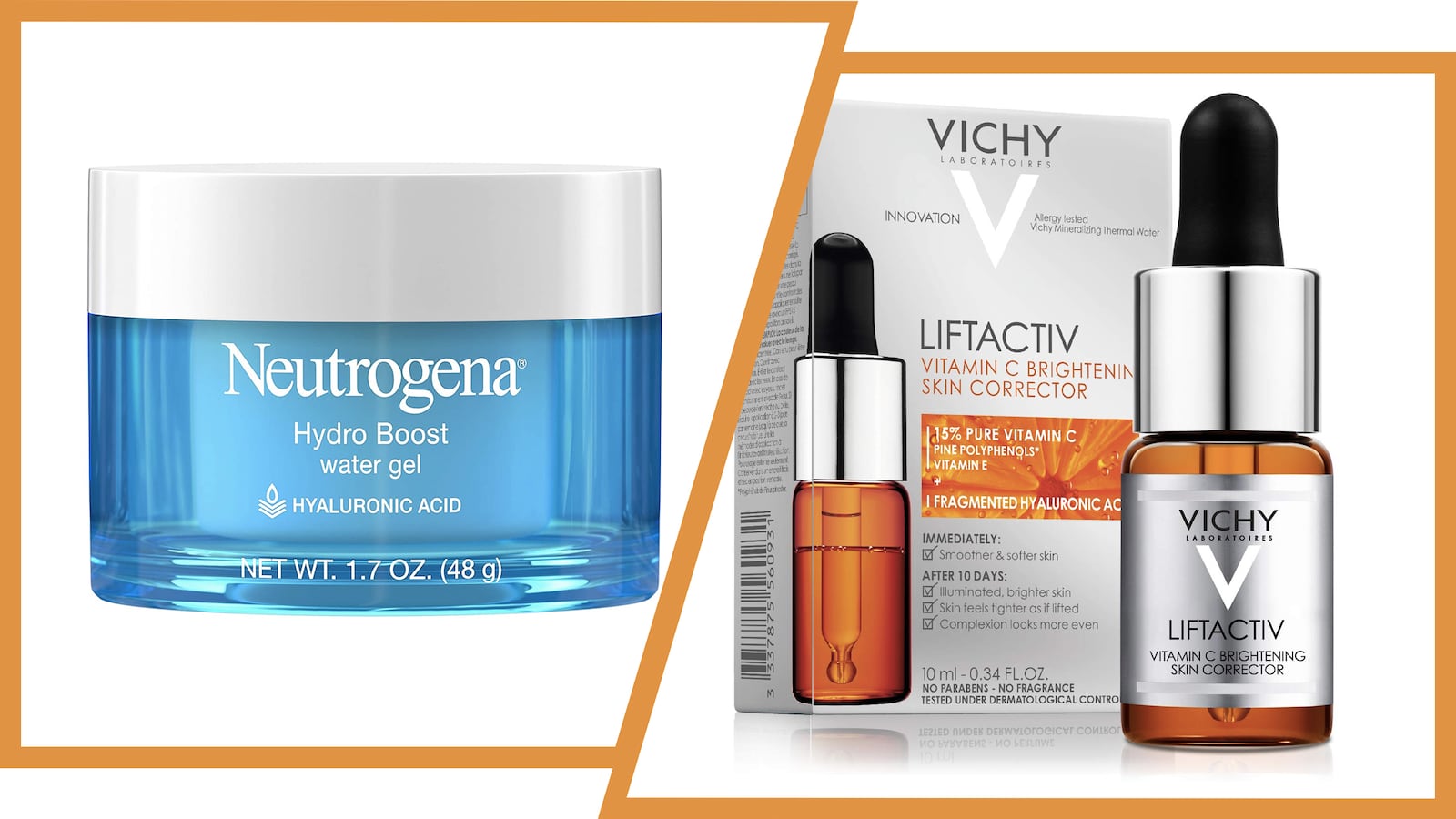Scouted selects products independently. If you purchase something from our posts, we may earn a small commission.
Twelve-step skincare routines are certainly a great way to pass all this newfound time we have to ourselves, but we don’t all have the money or patience for a daily, spa-like facial. If you’ve got a proper moisturizer and serum, you’re well on your way to skin that looks and feels healthy when the rest of you sure can’t say the same. We know the two products are both traditionally applied after a face wash, but how else do they differ? And do you actually need both?
WHAT IS A MOISTURIZER?
As its name suggests, “The most important function of your moisturizer is to keep your skin hydrated and protect your skin’s barrier,” says board-certified dermatologist Dr. Zenovia Gabriel, MD, FAAD. She explains that without this extra layer, your skin’s hydration levels are prone to evaporating and leaving your skin dry.
There are three different types of moisturizing agents, each boasting unique properties:
- Emollients: Composed mainly of lipids (fats) and oils, Dr. Gabriel says emollients hydrate, reduce dryness, decrease roughness, and restore the skin’s texture and appearance.
- Humectants: Using its rich, water-attracting properties, she says humectants pull moisture from the dermis to the epidermis, and from the environment into the skin.
- Occlusive: Occlusive moisturizers feature both oils and waxes to create a physical layer that prevents water loss and retains hydration. She notes that these varieties tend to feel greasiest on the skin due to the heavy physical barrier they create.
WHAT IS A SERUM?
“Facial serums are designed to be highly concentrated formulations that deliver targeted active ingredients to address your specific skin concerns whether it’s dryness, aging or acne,” she says. Unlike moisturizer, the goal isn’t necessarily to hydrate, but to increase the potency of your other products and address specific skin issues.
There are two types of serums to look out for:
- Water-based serums absorb more quickly into the skin and are used as a delivery system for water-soluble ingredients such as hyaluronic acid, says Dr. Gabriel.
- Oil-based serums take a bit longer to absorb into the skin, making them ideal for nighttime use, she says.
When it comes to your skincare routine, serum is often the cherry on the sundae, not the sundae itself, which would be your moisturizer. “Using a serum or not really depends on your skin’s specific needs. Many moisturizers deliver enough antioxidant benefits, for example, on their own,” says Dr. Gabriel.
There are situations, however, that warrant a more pressing need for serum: “If you have brown spots, inflamed skin, or are experiencing accelerated aging, then you may find that serums with potent ingredients can help boost your regimen,” she says.
Wait, but do you seriously need moisturizer even if you have greasy skin?
Say you’re like me and have a perpetually shiny T-zone: yes, you actually need to apply moisturizer each time you wash your face. “All skin types require a moisturizer, even oily skin types,” says Dr. Gabriel.
But don’t freak out—there’s no need to use the same thick, heavy moisturizer as your friend with dry, cracked skin. Simply opt for an oil-free moisturizer with hyaluronic acid, which boasts a gel-like consistency. Dr. Gabriel recommends Neutrogena’s line of hyaluronic acid moisturizers called Hydro Boost; Eucerin Sensitive Skin Face Lotion with SPF 30 for the morning; and CeraVe PM at night.
Look, it’s no secret that serum can yield this sort of stiff tightening sensation over your skin, almost like a toner, astringent or face mask. But that’s okay! Perform a sensitivity spot test before slathering it all over your face, recommends Dr. Gabriel. “Serums are not meant to be moisturizers,” says Dr. Gabriel. “I advise anyone using a serum to follow with a great moisturizer packed with ceramides and/or hyaluronic acid that will immediately reduce the dry sensation they may feel after applying.”
“Moisturizers that contain ceramides and hyaluronic acid are my top ingredients to look out for,” says Dr. Gabriel. Ceramides, a cholesterol agent necessary for protecting the natural barrier of the skin, functionally changes the skin by helping it retain optimal moisture levels. “Brands like CeraVe or Eucerin make great ceramide-filled moisturizers you can buy from your local drugstore,” she says. Additionally, hyaluronic acid is great for enhancing the skin’s natural moisture content, reducing the appearance of fine lines and wrinkles and improving skin texture.
Serum ingredients are highly dependent on what you’re trying to address, says Dr. Gabriel. Her go-to ingredients include vitamin C, peptides, green tea, and resveratrol due to their antioxidant properties.
Before adding to cart, read labels carefully. A serum containing vitamin C, for example, should have at least a 10 percent dose to be effective, says Dr. Gabriel. “It’s also important to note that many ingredients like vitamin C are unstable in an oxidative environment, and they oxidize when you open the bottle or squeeze out the serum from the dispenser, thus rendering the active ingredient ineffective,” she says. “Make sure to buy research-based products from reputable brands, read reviews, and look at before and after [photos] when choosing a serum.”
Her favorites include Neutrogena Hydro Boost Hydrating Serum for dry skin, Vichy LiftActiv Vitamin C serum for overall skin brightening. We also love Invity’s Youth Activating Instant Filler Serum because the hyaluronic-based formula acts as a flash filler—sans needles—instantly plumping fine lines and adding volume.
First, wash your face. You want that clean slate so your treatments aren’t locking any dirt or bacteria into your pores. Then, Dr. Gabriel says you should apply your toner, then a serum, then a moisturizer to lock it all in. Perform this both in the morning and night.
Because she says most moisturizers work more effectively in the presence of water, she recommends you always apply a quick spritz of water or thermal water spray on top of it (Mario Badescu’s facial spray featuring aloe, herbs, and rosewater is a cult classic).
If you have very dry skin, “It’s also best to steer clear of toners, which can have high alcohol content,” she says. After your moisturizer, apply an SPF in the daytime to minimize UV damage.
Scouted selects products independently and prices reflect what was available at the time of publish. Sign up for our newsletter for even more recommendations. Don’t forget to check out our coupon site to find deals from Sephora, CVS, and more. If you buy something from our posts, we may earn a small commission.






